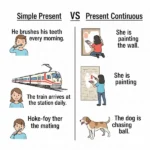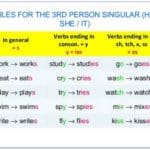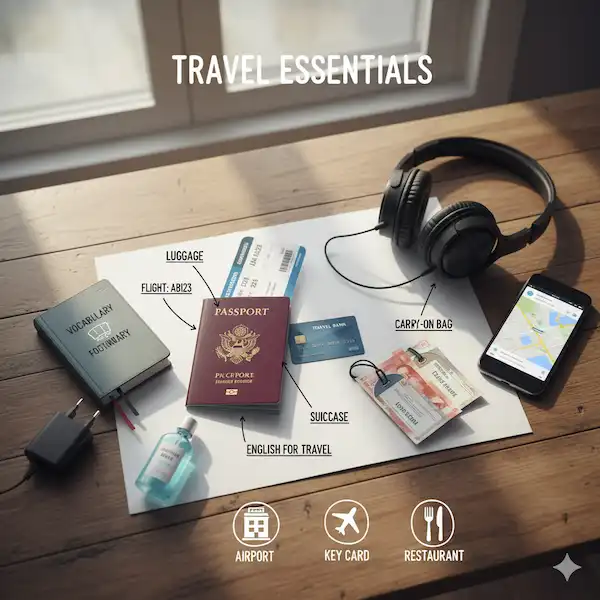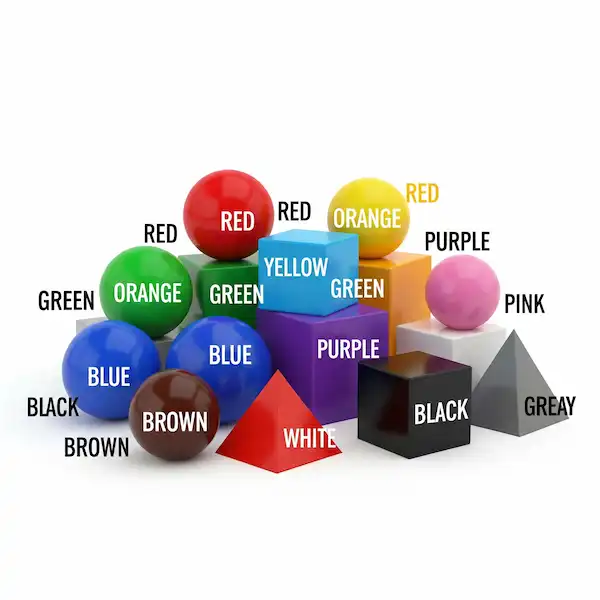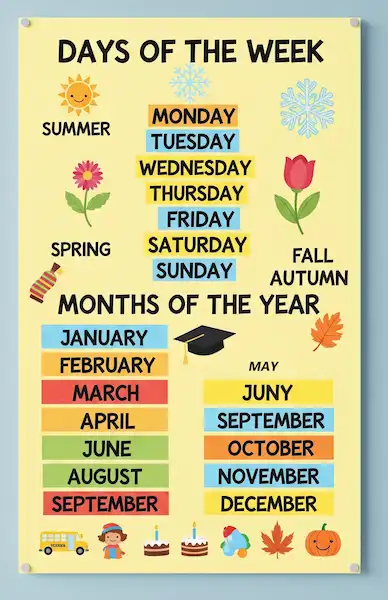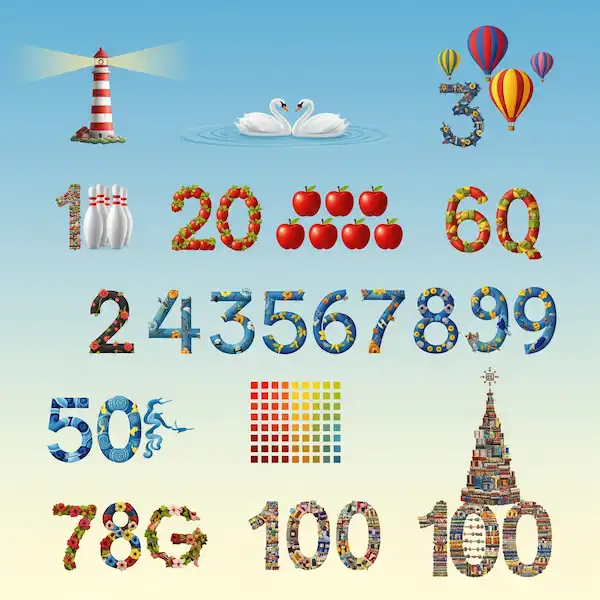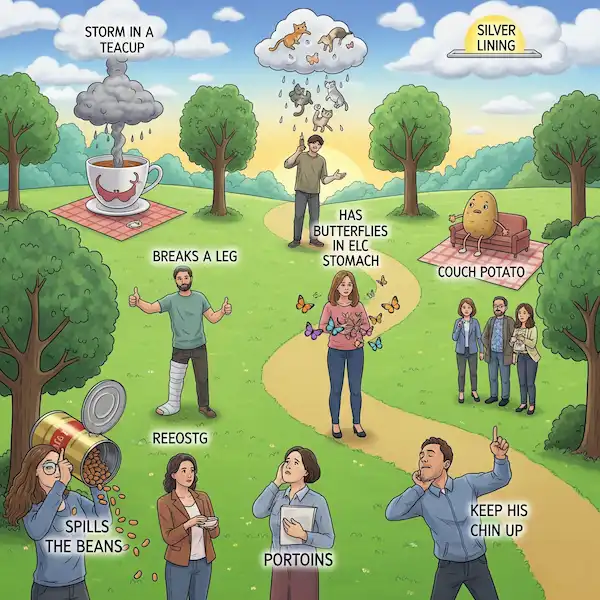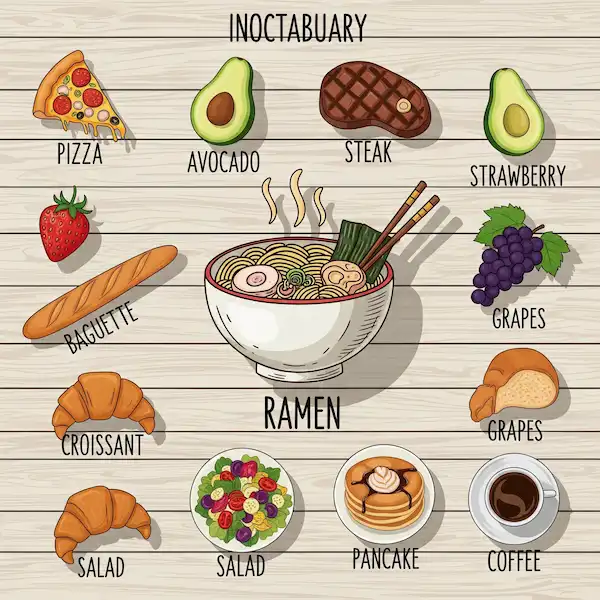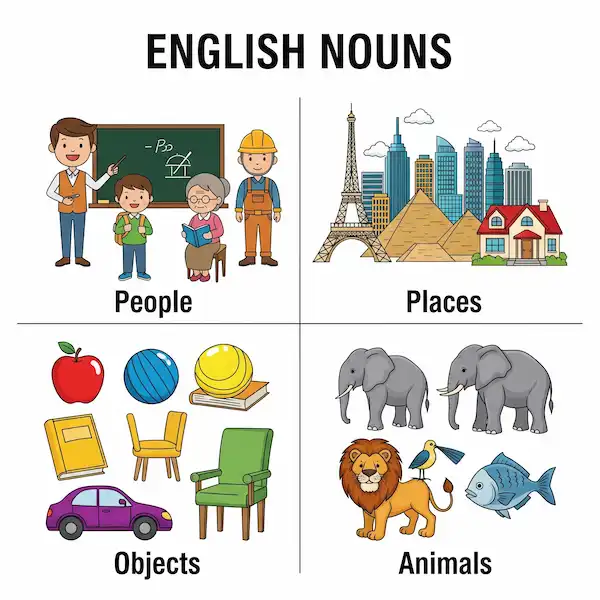Your English Day: A Daily Routine Vocabulary Guide!
Hi English learners! Do you ever wonder how to talk about your day in English? It’s super important to know words and phrases for your daily routine. This article will help you learn all about it!
Let’s start with the basics!
Morning Activities: Waking Up and Starting Your Daily Routine
The morning is when a new day begins! Here are some common things people do:
| English Phrase | What it Means | Example Sentence |
| wake up | To stop sleeping. | I wake up at 7:00 AM every day. |
| get up | To leave your bed. | After I wake up, I get up and stretch. |
| make the bed | To tidy your bed. | My mom always tells me to make the bed. |
| take a shower | To wash yourself. | I take a shower in the morning to feel fresh. |
| brush my teeth | To clean your teeth. | It’s important to brush your teeth twice a day. |
| wash my face | To clean your face. | I wash my face before putting on lotion. |
| get dressed | To put on your clothes. | I get dressed quickly so I’m not late. |
| eat breakfast | To have the first meal of the day. | What do you usually eat for breakfast? |
| drink coffee/tea | To have a hot drink. | My dad likes to drink coffee with his breakfast. |
| go to work/school | To travel to your job or studies. | I go to work by bus. |
| commute | To travel to and from work/school regularly. | My commute to work takes 30 minutes. |
Let’s see it in action! “Every morning, I wake up at 6:30 AM. Then, I get up and take a shower. After that, I brush my teeth and get dressed. I usually eat breakfast at 7:30 AM and then I go to work.”
Afternoon Activities: Your Daily Routine Continues!
The afternoon is the middle part of your day, usually after lunch.
| English Phrase | What it Means | Example Sentence |
| eat lunch/have lunch | To have the midday meal. | We usually eat lunch at 12:00 PM. |
| work | To do your job. | I work from 9:00 AM to 5:00 PM. |
| study | To learn things from books or classes. | I study English in the afternoon. |
| go shopping | To buy things. | I need to go shopping for groceries. |
| run errands | To do small tasks like shopping or going to the bank. | After work, I usually run errands. |
| exercise/work out | To do physical activity. | I exercise at the gym three times a week. |
| take a nap | To sleep for a short time. | Sometimes I take a nap after lunch. |
Example Paragraph: “In the afternoon, I eat lunch with my colleagues. Then I work until 5:00 PM. Sometimes, if I have time, I go shopping for a little while before heading home.”
Evening Activities: Winding Down Your Daily Routine
The evening is the last part of your day before you go to sleep.
| English Phrase | What it Means | Example Sentence |
| go home | To return to your house. | I go home after work. |
| make dinner/cook dinner | To prepare the evening meal. | My husband likes to cook dinner on weekends. |
| eat dinner/have dinner | To have the evening meal. | We eat dinner together as a family. |
| wash the dishes/do the dishes | To clean plates, cups, etc. | Please help me wash the dishes! |
| clean the house | To make your home tidy. | I like to clean the house on Saturdays. |
| watch TV | To look at television programs. | We usually watch TV after dinner. |
| read a book | To look at and understand words in a book. | I like to read a book before bed. |
| spend time with family/friends | To be with people you know well. | I love to spend time with my family. |
| take a bath | To wash yourself while sitting in a tub of water. | My children love to take a bath with bubbles. |
| go to bed | To get into your bed to sleep. | I usually go to bed around 10:00 PM. |
| fall asleep | To start sleeping. | It takes me a few minutes to fall asleep. |
Example Paragraph: “After going home, I sometimes make dinner. Then we eat dinner and wash the dishes. In the evening, I like to watch TV or read a book before I go to bed.”
Times of the Day
It’s helpful to know how to talk about different parts of your daily routine.
| Time of Day | What it Means | Example Use |
| morning | From sunrise to noon. | I study English in the morning. |
| afternoon | From noon to sunset. | Let’s have lunch in the afternoon. |
| evening | From sunset to bedtime. | What are you doing this evening? |
| night | From bedtime to sunrise. | I sleep well at night. |
| noon | 12:00 PM | I eat lunch at noon. |
| midnight | 12:00 AM | The party ended at midnight. |
Additional Helpful Content:
Prepositions of Time
We often use “at,” “in,” and “on” with times and days.
- At: For specific times (at 7:00 AM, at noon, at midnight).
- I wake up at 7:00 AM.
- In: For parts of the day (in the morning, in the afternoon, in the evening).
- I study in the afternoon. (But: at night)
- On: For specific days (on Monday, on the weekend).
- I go shopping on Saturday.
Adverbs of Frequency
These words tell us how often you do something.
| Adverb | How often | Example Sentence |
| always | 100% | I always brush my teeth in the morning. |
| usually | 90% | I usually drink coffee with breakfast. |
| often | 70% | I often watch TV in the evening. |
| sometimes | 50% | I sometimes take a nap after lunch. |
| rarely | 10% | I rarely go to bed after midnight. |
| never | 0% | I never eat meat. |
Let’s put it together: “I always wake up early. I usually take a shower and then I often eat a big breakfast. I sometimes go for a walk in the afternoon.”
Practice Your Daily Routine!
Now, try to describe your own daily routine! You can use words like:
- First,
- Then,
- After that,
- Next,
- Finally,
My Daily Routine Example:
“First, I wake up at 6:00 AM. Then, I get up and take a shower. After that, I brush my teeth and get dressed. Next, I eat breakfast and drink coffee. Finally, I go to work.”
Challenge Yourself!
Try to write a short paragraph about your perfect day using as many new words and phrases as possible!
Here is a PDF worksheet you can download to practice writing about your daily routine. The answers are on a separate page.
Additional Helpful Links
- Learn more about English you can use when traveling – English for Travel: Hotel, Airport & Restaurant Words
- Learn about asking and telling time in English – Telling Time in English: A Beginner’s Guide
Useful External Resources:
- British Council Learn English: https://learnenglish.britishcouncil.org/ (Look for sections on daily routines or basic vocabulary)
- VOA Learning English: https://learningenglish.voanews.com/ (Great for listening practice with simplified news and stories, often includes daily life topics)
- Cambridge Dictionary: https://dictionary.cambridge.org/ (For looking up new words and seeing example sentences)
Keep practicing, and soon you’ll be talking about your day like a pro!


